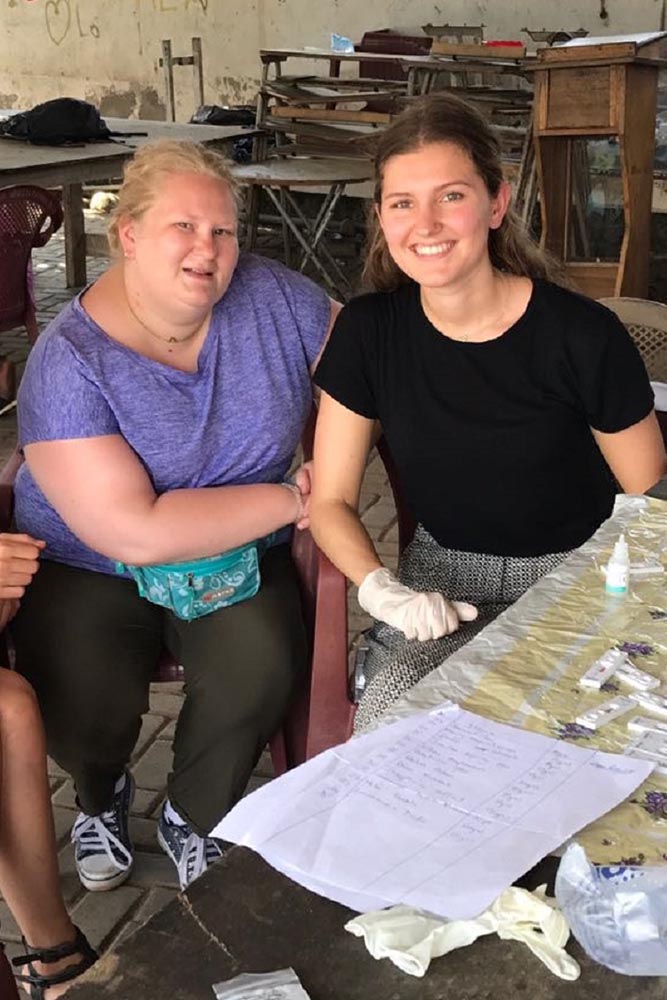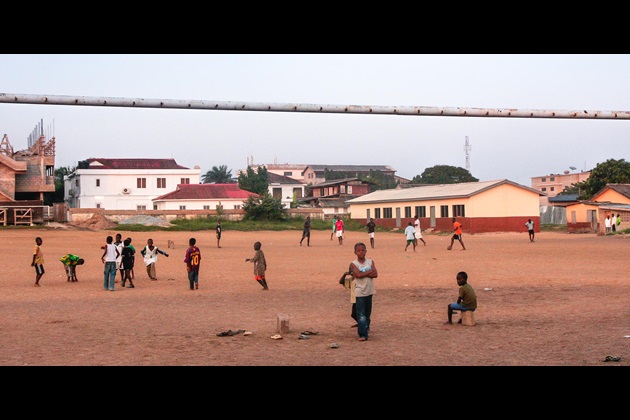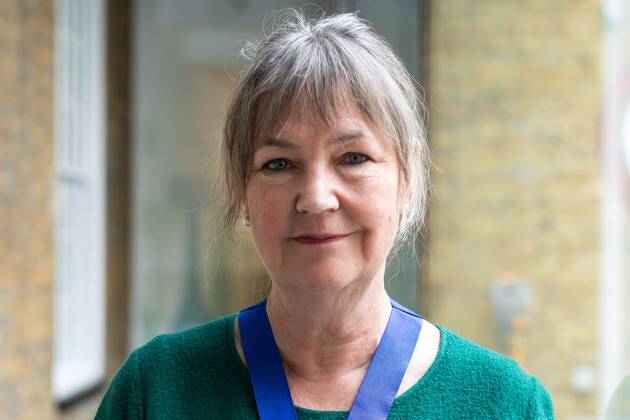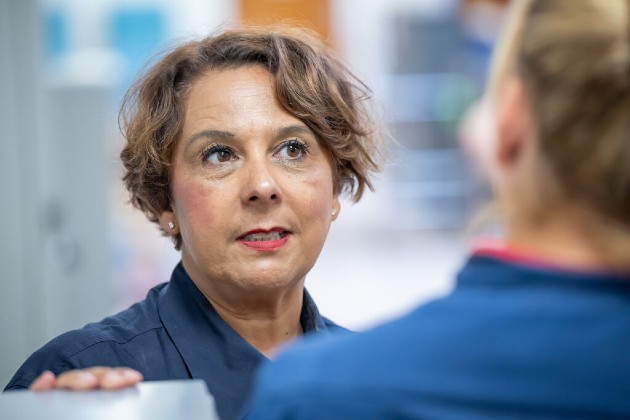I’m a student at Bangor University in North Wales where we learn in both Welsh and English, and are taught that cultural awareness and sensitivity are important aspects of good nursing care.
At the end of the second year of my learning disability degree course, I had the opportunity to work with children in an orphanage in Ghana, organised through Projects Abroad, an international volunteering organisation. The orphanage was called New Life, and I was to stay with a local family used to hosting volunteers and eager to share their way of life.
I was welcomed at the family home with kindness and big smiles but it was a shock to see how different their house was from mine. There were barrels to save water in and we showered using a bucket. There were no bins and all the rubbish had to be burned, so there was always a lot of smoke. There was sand everywhere and my room was very basic.
The family cooked all my meals. A popular dish is “red-red”. This uses plantain – similar to banana – fried with beans. It came with rice and was very spicy. I enjoyed it at the beginning, less so at the end because I was having it twice a week. I had to eat cold the lunch I was given by the family as there was nowhere to heat it up.
Inside the orphanage
The orphanage looked small, although a much bigger house was being built next to it. On the girls’ side there were only two bedrooms, and there were mattresses and beds in the corridor. I felt sad that the children were living like this but they were excited to see someone white with blonde hair, and they played a lot with my hair and hands. There were 62 children and young people living there. The youngest was six months and the oldest was 22.
Talking to the Project Abroad team about learning disability nursing, it was suggested that with my knowledge and skills I should support a young girl, Princess, who had Down’s syndrome. Princess was about eight years old but there was no record of her birth. My role was to consider how to improve her quality of life.
My role was to consider how to improve her quality of life
I soon realised the staff knew very little about Down’s syndrome so I drew on my knowledge to produce an information pack for them, even though time and access to a computer with internet access were limited. I included some facts about Down’s syndrome and the health problems associated with it such as diabetes.
I kept the information very simple and when I showed it to a member of the Project Abroad staff they said it would be helpful elsewhere in Ghana and other countries where Project Abroad is involved.

My time in Ghana was short so I was not able to see whether the information pack helped staff to understand more about Down’s syndrome. But generally the children seemed happy and cared for, even though no close family visited. I developed a close therapeutic relationship with Princess so it was emotional when I left.
Different outlook
Volunteering in Ghana changed the way I think about things. We rely so much on the internet for information and evidence to support practice, whereas in Ghana I used what I had learned from my course and put it into practice.
The experience has made me ready for anything. I’m going on placement soon and I want to go to another health board in Wales to see how they work. I know there will be challenges but in my mind I can see the children at the orphanage all smiling and that will always be with me. I’ll remember to smile even when things are hard.
I would encourage anyone interested to experience nursing in Ghana, or any other developing country, to see how people live and to help them in any way you can. It will make you look at things in different ways.
Considering an overseas elective?
Undertaking an elective placement overseas can offer you a fantastic opportunity to connect with peers from all over the word, broaden your academic knowledge and immerse yourself in another culture. It would also give you the opportunity to view UK health care systems from a new perspective.
Where to start
It's important to start planning your elective placement several months in advance. Ask your university what opportunities for overseas elective placements they might offer and what criteria you would need to meet. They may have existing links with overseas health care institutions, an established overseas electives system or dedicated staff who can help you. Through your university you may be able to connect with, and learn from, students who have already undertaken an overseas placement.
There are several companies which can tailor elective placements to meet individual needs; it might be worth exploring their websites.
Find out more
For more information read the RCN’s guide for student members planning an elective placement overseas including advice on indemnity, finances, visas and travel insurance.








